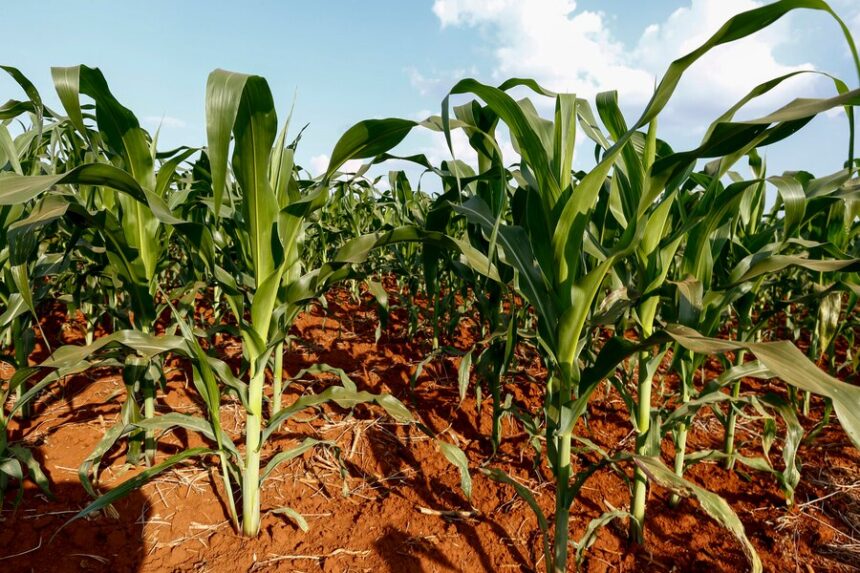Maize is one of the most widely grown staple crops across Africa, but cultivating it in dry climates can be a real challenge. With rainfall becoming increasingly unreliable due to climate change, farmers in arid and semi-arid regions need smart strategies to ensure a healthy yield. The good news is that with the right techniques and planning, successful maize farming is possible even in dry conditions.
The first tip is selecting drought-tolerant maize varieties. Many agricultural research institutions in Africa, including South Africa’s ARC and Kenya’s KALRO, have developed hybrid and open-pollinated maize seeds that are more resilient under water stress. Choosing the right variety can significantly increase your chances of a good harvest when rainfall is scarce.
Early planting is another crucial step. Planting your maize crop at the very beginning of the rainy season allows the plants to make the most of the available moisture. Late planting often leads to poor germination or reduced grain filling due to water stress later in the season. Farmers should monitor weather forecasts and be ready to sow as soon as the first rains fall.
Soil preparation plays a key role in water retention. Deep ploughing helps break compacted layers, allowing water to infiltrate more easily and be stored deeper in the soil. Adding organic matter like compost or manure improves the soil’s ability to retain moisture and release nutrients gradually.
Conservation tillage practices, such as minimum till or zero tillage, help reduce water loss through evaporation. Instead of turning the soil completely, these methods involve leaving crop residues on the surface to act as a mulch. This mulch also helps suppress weeds, which would otherwise compete with maize for limited water.
Spacing is often overlooked but very important. In dry climates, maize plants should be spaced slightly wider than in wetter areas to reduce competition for moisture. Proper spacing allows roots to spread out and access water more efficiently, resulting in healthier growth and better yields.
Irrigation, if available, should be used wisely. In many dry regions, water is scarce, so techniques like drip irrigation or bucket irrigation should be considered. These methods deliver water directly to the root zone with minimal wastage. Even limited irrigation during key growth stages like tasseling and grain filling can make a significant difference.
Weed control is vital in dry climates. Weeds compete aggressively with maize for water and nutrients. Regular weeding, especially during the early stages of growth, ensures that maize plants get the most benefit from the limited water available. Using mulching or herbicides where appropriate can help maintain a weed-free field.
Fertiliser use should be targeted. Applying small but well-timed doses of fertiliser helps support growth without wasting resources. In dry areas, fertilisers should be placed near the root zone to increase efficiency. Organic options like well-decomposed manure or compost can also provide a sustainable nutrient boost.
Pest and disease management is essential to protect the crop. In dry climates, stressed maize plants are more vulnerable to pests like stalk borers and diseases such as maize streak virus. Scouting regularly and using integrated pest management strategies can help keep threats under control.
Finally, record keeping helps farmers learn from each season. Documenting planting dates, rainfall, seed types, fertiliser use, and yields helps track what works best in your area. This information is invaluable for improving future farming decisions and adapting to changing weather patterns.
Growing maize in dry climates isn’t easy, but with these ten practical tips, small-scale and commercial farmers alike can boost their productivity and resilience. Through smart planning, soil care, and appropriate technology, maize can remain a reliable food and income source—even under tough conditions.
Join 'Farmers Mag' WhatsApp Channel
Get the latest Farming news and tips delivered straight to your WhatsApp
CLICK HERE TO JOIN






